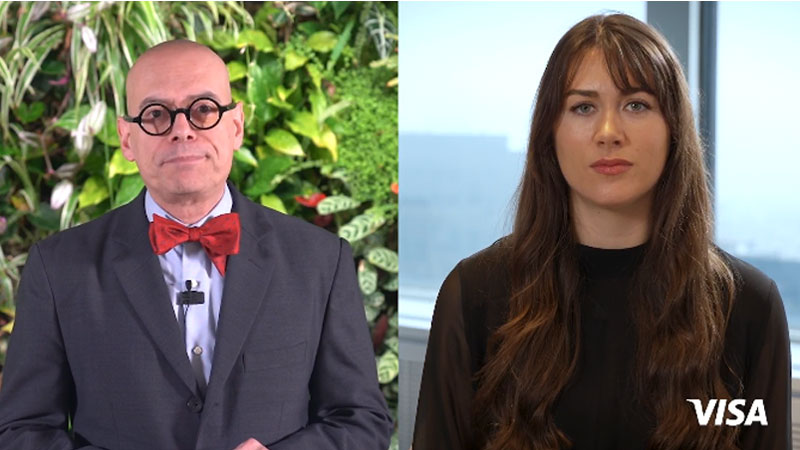Broad-based global economic growth expected in 2025

The global economic outlook, by region:
Europe: Signs of a turnaround in the outlook tempered by global uncertainty
Europe Principal Economist Adolfo Laurenti and Europe Economist Hannah Heeran discuss the 2025 economic outlook for Europe, which is dominated by uncertainty. But it is not all doom and gloom. In fact, there are some positive macroeconomic fundamentals that are expected to boost consumption and support activity. Key drivers include labour markets, wages and salaries that have been steadily rising, and household income, which is also rising and outpacing inflation. Central banks will likely continue to gradually reduce policy rates, which will help households and small business to access credit in 2025.
View the global video to hear Adolfo and Hannah discuss the risks to the outlook, including Europe’s over-reliance on exports, vulnerabilities to energy prices, high government deficits, and geopolitical instability.

U.S.: A year of known unknowns

Asia Pacific: Finding a way in Asia Pacific's new economic reality
Principal AP Economist, Simon Baptist, reports Asia Pacific will remain the world’s fastest-growing region, even as Mainland China’s economy faces structural headwinds such as a declining workforce size, and weak confidence amid a property slump. 2025 will be a year of uncertainty and structural change, with potential new U.S. policies likely to have an impact on this highly trade-exposed region, and authorities in Mainland China calibrating stimulus to accelerate growth and inflation in the world’s second-largest economy.
"Welcome to Asia’s new economic reality."
View the global video and hear about the four key themes that Simon is monitoring for the AP region and the biggest driver of growth—urbanization—that along with sufficient improvements to the business environment will help propel several emerging markets to become growth leaders.

LAC: Growth in a time of populism
Sr. LAC Economist, Joel Virgen Rojano, says aggregate economic growth in Latin America and the Caribbean is expected to decelerate to 1.9 percent,² with the largest six economies—Brazil, Mexico, Argentina, Chile, Colombia, and Peru—contributing more than half of the annual growth. Consumer spending growth is anticipated to moderate due to slower job creation and tamer gains in real earnings.
View the global video to hear his full assessment of the LAC outlook, including risks such as the direct and indirect effects of potential new U.S. tariffs on key LAC markets and climate shocks that are becoming more frequent and extreme in LAC. Not only do these have the potential to distress large swaths of the population, but they can also impact consumption, infrastructure, logistics, and food prices.

CEMEA: Four sub-regional economic trends with global implications
Principal CEMEA Economist, Mohamed Bardastani, outlines key trends in each of the four CEMEA sub-regions expected to have global implications (view the global video). (1) The Commonwealth of Independent States and Southeast Europe is stabilizing, with Ukraine making slow progress to restore some form of economic stability following a couple difficult years at war. (2) The Gulf Cooperation Council countries are diversifying their economies away from oil dependence, with the Saudi private sector workforce growing steadily, labor force participation among Saudi women more than doubling,³ and inbound tourism to Saudi Arabia expected to get a big boost under the Vision 2030 plan.
(3) In North Africa, renewable energy is a growing trend, with projects in Morocco and Egypt leading the charge. Both countries aim to generate more than half of their energy from renewable sources by 2030 and 2040 respectively. Finally, (4) Sub-Saharan Africa is undergoing a tech and innovation boom. Hubs in Nigeria and Kenya are emerging as global tech players. Growth in fintech, e-commerce, and software development is driving Nigeria’s tech industry expansion.

Footnotes
- Oxford Economics
- Visa Business and Economic Insights and Oxford Economics
- World Bank
Forward-Looking Statements
This report may contain forward-looking statements within the meaning of the U.S. Private Securities Litigation Reform Act of 1995. These statements are generally identified by words such as “outlook”, “forecast”, “projected”, “could”, “expects”, “will” and other similar expressions. Examples of such forward-looking statements include, but are not limited to, statements we make about Visa’s business, economic outlooks, population expansion and analyses. All statements other than statements of historical fact could be forward-looking statements, which speak only as of the date they are made, are not guarantees of future performance and are subject to certain risks, uncertainties and other factors, many of which are beyond our control and are difficult to predict. We describe risks and uncertainties that could cause actual results to differ materially from those expressed in, or implied by, any of these forward-looking statements in our filings with the SEC. Except as required by law, we do not intend to update or revise any forward-looking statements as a result of new information, future events or otherwise.
Disclaimers
The views, opinions, and/or estimates, as the case may be (“views”), expressed herein are those of the Visa Business and Economic Insights team and do not necessarily reflect those of Visa executive management or other Visa employees and affiliates. This presentation and content, including estimated economic forecasts, statistics, and indexes are intended for informational purposes only and should not be relied upon for operational, marketing, legal, technical, tax, financial or other advice and do not in any way reflect actual or forecasted Visa operational or financial performance. Visa neither makes any warranty or representation as to the completeness or accuracy of the views contained herein, nor assumes any liability or responsibility that may result from reliance on such views. These views are often based on current market conditions and are subject to change without notice.
Visa’s team of economists provide business and economic insights with up-to-date analysis on the latest trends in consumer spending and payments. Sign up today to receive their regular updates automatically via email.